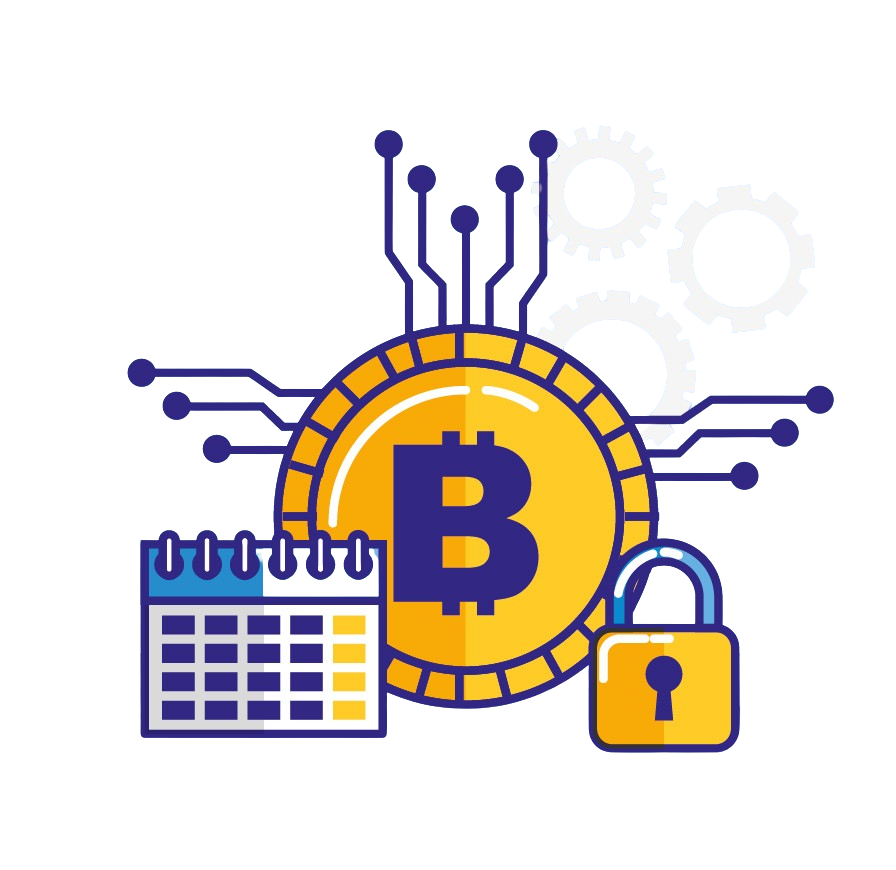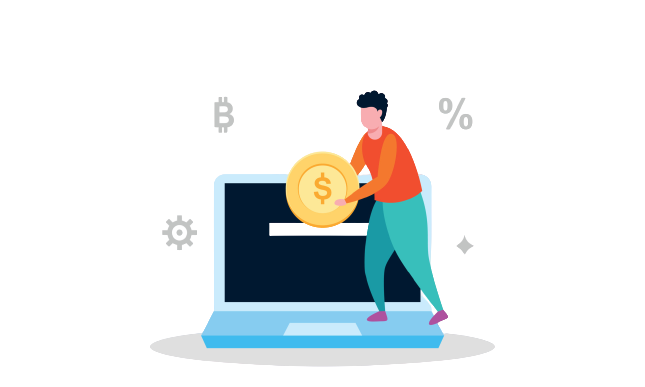
With Bitcoin reaching new all-time highs, more people than ever are looking to get in on the action and buy BTC. But cryptocurrency also attracts hackers, scammers, and thieves looking to steal funds. Properly securing your Bitcoin is essential.
This guide will cover best practices for keeping your Bitcoin investments safe using the best Bitcoin wallet solutions available today. Follow these tips to confidently enjoy the benefits of Bitcoin without fear of catastrophic loss.
Securing Bitcoin Wallets
Unlike money stored in a bank account, Bitcoin wallet holders themselves are responsible for security. There are no passwords to reset or emergency phone numbers to call. The impact of poor security habits can be severe.
Thankfully, adhering to best practices can make your Bitcoin incredibly secure against all reasonable attack vectors. Let’s examine the main Bitcoin wallet types and ideal security measures for each one:

Mobile Wallets Mobile apps that store Bitcoin, like Bitamp, Exodus and Jaxx, offer convenience and easy access. However, they also carry security risks since they are constantly connected to the internet.
For small amounts of daily spending money, trusted mobile wallets are fine. But for larger holdings, more caution is warranted.
Tips for mobile wallet security include using a dedicated device that is clean, running updated software, and featuring a locked screen. Enable any available additional security features like PIN codes, biometric authentication, or mandatory confirmation screens before sending.
Never store large holdings in a mobile wallet long term. Instead, use them in conjunction with a more secure main storage option like a hardware wallet.
Desktop Wallets Desktop wallets provide enhanced security over mobile options but remain constantly online which leaves certain attack vectors open. Desktop wallets like Bitamp, Electrum and Exodus let you store BTC on your laptop or PC.
For improved safety, use a dedicated clean computer for your Bitcoin wallet, disconnected from the internet when not in use. An offline computer cannot be remotely hacked. Keep the OS and wallet software religiously updated.
As with mobile, use desktop wallets sparingly for what you need for accessible daily use while storing the bulk of Bitcoin holdings in cold storage.
Web Wallets Web-based wallets like Blockchain.com function similarly to mobile and desktop but require no software installation—only an account signup. This offers convenience at the massive cost of security.
Web wallets put your private keys in the hands of a third-party company. They also leave your Bitcoin open to remote hacking of either the provider or your account.
Avoid web wallets if at all possible due to the immense security risks. They are fine for trivial test amounts, but never for significant holdings.
Paper Wallets Paper wallets let you store Bitcoin offline as physical documents. Services like WalletGenerator.net create PDFs with QR codes containing your public and private keys printed out.
To enhance security, move the paper wallet PDF onto a clean airgapped machine or USB drive. Print a few copies and store them in secure hidden locations like a home safe or bank vault box.
Paper wallets are immune to hacking but vulnerable to theft, water damage, and losing keys. They also require manually sweeping funds back into a live wallet. Overall, paper wallets offer moderate convenience but improved security over purely digital options.
Hardware Wallets
Hardware wallets like the Ledger Nano X and Trezor Model T are the wallet options for seriously securing larger holdings of Bitcoin if you looking for hardware wallet options. These devices keep private keys in “cold storage” offline on a dedicated piece of hardware.
Even when connected to an internet-connected computer, the keys never leave the device. Hardware wallets are resistant to all known remote hacking attacks.
For significant investment holdings, using a hardware wallet is strongly advised over any other option. The one-time cost is minor compared to the protection provided against online threats.
Hardware wallets still have some vulnerability to physical theft or losing the device. Properly backing up the recovery phrase and storing it securely mitigates this remaining risk.
Multisig Wallets Multisig (multi-signature) wallets require approval from multiple private keys to access funds. This splits control across different parties as a security measure.
For example, Coinbase vault accounts are a 2-of-3 multisig setup: funds can only be moved with approval from any 2 of the 3 keys. The third key is held by Coinbase for account recovery.
Multisig helps protect against theft of any single key. It is commonly used by casinos, exchanges, and investment funds to spread control. The main drawback is the higher complexity of setup and spending money.
Multisig combined with hardware wallets can provide the highest level of Bitcoin security. Wallet providers like Unchained Capital offer sophisticated multi-key structures tailored to your risk profile.
Security Tips for Any Wallet
Certain universal tips will enhance the security of any Bitcoin wallet, no matter the type:
Use unique, randomly generated, lengthy passwords of 12+ words and special characters. Never reuse passwords across accounts.

Store backup phrases, recovery seeds, or private keys as physical documents or memorized – never digitally. Use layers like safety deposit boxes, cryptocurrency steel plates, Shamir’s Secret Sharing schemes, and more.
Enable all available security options like 2FA, biometrics, whitelists, and confirmation prompts. Disable options adding risk like default sharing tools.
Keep all software (OS, wallets, antivirus, etc) updated constantly to patch vulnerabilities when discovered.
Only run wallet apps and visit crypto sites on safe, clean devices, free from malware. Perform malware scans regularly.
Never enter private keys or sensitive data on unknown sites or links. Double-check web URLs for typosquatting.
Be deeply skeptical of all unsolicited communications like emails, chats, or DMs related to your crypto accounts. Use social engineering awareness to identify scams.
As the saying goes, “A chain is only as strong as its weakest link.” While hardware wallets strengthen the core link, applying security across all other links ensures your Bitcoin is locked down tight.
Bitcoin Key Management
Beyond Bitcoin wallets, properly managing the keys themselves is critical to security. Cryptocurrency keys open the door to funds – lose them or expose them, and you can lose everything.
Here are some key tips for keeping your keys and seed phrases safe:
Never digitally transmit or email keys. Online and email channels can be compromised.
Physically back up keys onto durable materials like Cryptosteel capsules. Avoid paper which can burn or fade.
Split using Shamir’s Secret Sharing to divide keys into multiple parts stored separately. This avoids a single point of failure.
For the utmost safety, memorize keys or passphrases. The human brain offers the most durable and offline storage. But make sure you can reliably recall the info.
When entering keys on devices, ensure no cameras have line-of-sight to avoid shoulder surfing. Disable all nearby mics for audio capture as well.
Only enter keys on secure clean devices you control, never on public machines. Safely wipe keys from the device memory when finished.
Your private keys are the keys to the kingdom. Securing them against physical and digital theft is essential to keeping your Bitcoin investments safe over the long term.
Conclusion
The incredible rise of Bitcoin has made cryptocurrency security a top priority for investors. While no storage solution is 100% foolproof, following best practices dramatically reduces the risk of theft. Storing the bulk of Bitcoin holdings in a hardware wallet, managing keys prudently, and applying layered defences across all aspects offer peace of mind.
Taking the right precautions allows you to enjoy the possibilities of decentralized money without having to constantly look over your shoulder. Just like carrying cash demands vigilance in the physical world, thoughtful Bitcoin security is the price that must be paid to safely realize the benefits of financial sovereignty in the digital realm.